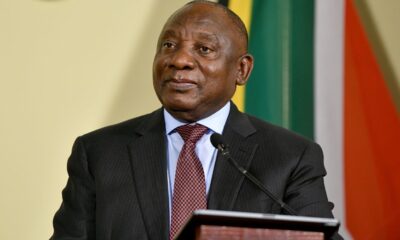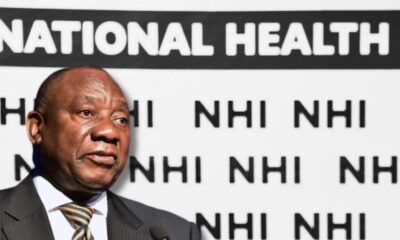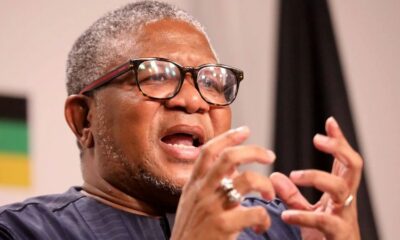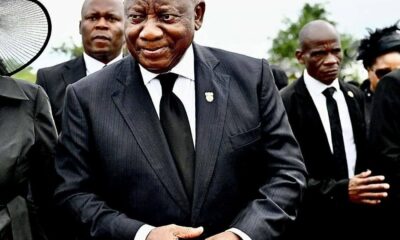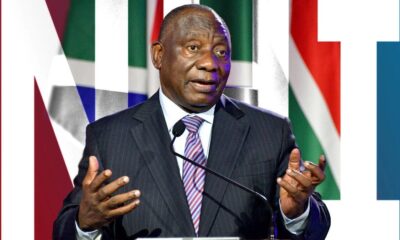News
G20 Summit Ends, but the Diplomatic Storm Between South Africa and the US Is Just Beginning
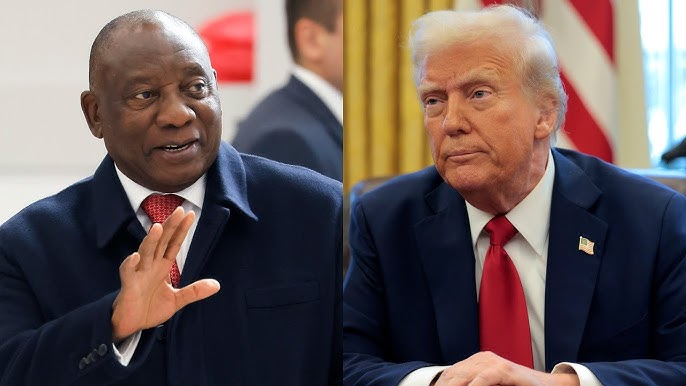
South Africa’s big diplomatic moment was supposed to be a weekend celebration. Instead, it ended with a transatlantic stare-down.
South Africa officially wrapped up its presidency of the G20 with a summit in Johannesburg that drew representatives from more than 40 countries and institutions. But instead of a calm handover to the next host, an ordinary part of G20 traditionthe United States accused Pretoria of undermining the bloc and pushing through a climate declaration “against US objections.”
The White House, speaking through spokeswoman Anna Kelly, went as far as questioning the legitimacy of the summit’s outcome. For South Africa, that was a line crossed.
‘They’re talking to the world, not to us’ – SA fires back
William Baloyi, the head of Government Communication and Information Systems (GCIS), responded sharply, insisting the US critique was not only misplaced but fundamentally misunderstood.
“The G20 is not South Africa,” he reminded Washington. “Whatever any host nation says, they must know they are talking to the world.”
Baloyi stressed that the Johannesburg summit successfully concluded its mandate and that the final declarationcovering global challenges like climate change and development financewas overwhelmingly supported by G20 members.
South Africa merely chaired it, he said. The world approved it.
What added fuel to the fire?
The US didn’t even attend, choosing instead to send a junior delegation. Local analysts immediately read that as a diplomatic snub.
A presidency handed over… but not peacefully
President Cyril Ramaphosa, reflecting on South Africa’s year at the G20 helm, emphasised that the country placed Africa’s development at the centre of global discussions.
Through partnerships and common humanity, he said, the world could build “a more secure, more just and more prosperous” future.
But the US made it clear it didn’t like how the summit unfoldedespecially the climate declaration it opposed. President Donald Trump even said he would “restore legitimacy to the G20” when the US hosts the summit next year.
For many in South Africa, the message was loud and unfriendly.
Inside the declaration: debt, development, and a frustrated Global South
The final G20 declaration highlighted one of Africa’s most pressing concerns: crippling debt. Leaders reaffirmed commitments to help developing countries break free from an unfair financial system that stifles:
-
infrastructure investment
-
disaster preparedness
-
healthcare
-
education
-
long-term economic growth
Russia’s Maxim Oreshkin echoed this, warning that weak global financial institutions cannot tackle Africa’s growing debt crisisset to hit a staggering $3 trillion this year.
For African nations, the declaration was more than symbolic. It was long-awaited recognition.
Where things really get messy
International relations experts say the US reaction wasn’t just about climate policyit was about geopolitics.
Dr. Noluthando Phungula, a respected analyst, warned that Washington’s comments will only “exacerbate tensions” with South Africa.
Her take is blunt:
-
The US deliberately sent a junior delegation.
-
That signalled disregard for the developing world.
-
It will push South Africa and countries in the Global South even closer to China, Russia, and the BRICS orbit.
According to her, this confrontation reflects a broader shift: countries in the Global South are actively trying to rebalance power away from the West.
And by showing it could host a successful G20, even without the USSouth Africa inadvertently strengthened that movement.
A bit of history: why the tension feels familiar
This isn’t the first time Washington and Pretoria have butted heads.
-
The US was unhappy with South Africa’s stance on the Russia–Ukraine war.
-
Pretoria’s BRICS alignment has long made Western capitals uneasy.
-
And recently, Trump falsely accused the South African government of orchestrating “genocide” against white Afrikanersa claim widely condemned at home.
So when the US questioned the legitimacy of a global summit held in Johannesburg, many South Africans felt it wasn’t coming from a neutral place.
Public mood: ‘We don’t need their permission’
Reaction on South African social media has been fiery.
Some common sentiments:
-
“How can a country that didn’t attend question the outcome?”
-
“The US can’t keep deciding what’s legitimate for the rest of the world.”
-
“Africa finally drives global conversations and suddenly it’s a problem.”
There is a growing confidence, especially among younger South Africansthat the country should stand firm even when bigger powers push back.
What happens next?
Minister in the Presidency Khumbudzo Ntshaveni was clear: The G20 declaration wasn’t South Africa acting alone; it was a collective decision.
“If they don’t want us to participate,” she said, “they’ll have to explain that to nineteen other members of the G20. The world will be watching.”
Next year, the summit moves to the United States.
Whether it will be a smooth transitionor a diplomatic battlefieldremains to be seen.
But one thing is certain:
The G20 meeting is over, but the tension between South Africa and the US is nowhere near cooling down.
{Source: IOL}
Follow Joburg ETC on Facebook, Twitter , TikTok and Instagram
For more News in Johannesburg, visit joburgetc.com

